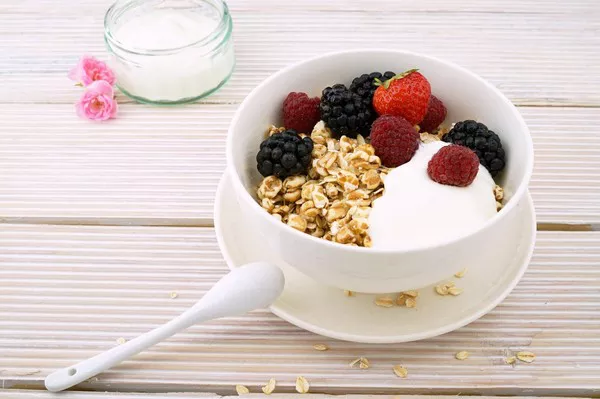In recent years, the fitness industry has witnessed an exponential rise in the popularity of protein supplements, with whey protein leading the pack. As a potent source of essential amino acids, whey protein is known for its muscle-building and recovery benefits. However, with countless brands and types of whey protein available on the market, selecting the best option can be a daunting task. This article aims to unravel the protein puzzle and provide you with the necessary information to make an informed decision when choosing the best whey protein for your needs.
Understanding Whey Protein
Whey protein is derived from milk during the cheese-making process. It consists of two primary forms: whey protein concentrate (WPC) and whey protein isolate (WPI). WPC contains varying levels of protein, carbohydrates, and fats, while WPI undergoes further processing to remove lactose and fat, resulting in a higher protein content per serving. Both forms offer similar benefits, but the choice depends on individual goals and dietary restrictions.
In addition to whey protein concentrate (WPC) and whey protein isolate (WPI), there are a few other types of whey protein worth considering:
a. Whey Protein Hydrolysate (WPH): This form of whey protein undergoes further processing to break down the protein into smaller peptides, making it easier to digest and absorb. Whey protein hydrolysate is often considered the fastest-absorbing form of whey protein, making it an excellent choice for post-workout recovery.
b. Native Whey Protein: Native whey protein is produced directly from milk and is considered the purest form of whey protein available. It is minimally processed, which helps retain the natural bioactive compounds present in the whey. Native whey protein may have additional benefits beyond muscle building, such as immune system support and antioxidant properties.
c. Blends: Some brands offer protein blends that combine different types of whey protein, such as a mixture of whey protein concentrate, isolate, and hydrolysate. These blends aim to provide a balance of protein quality, absorption rates, and flavor profiles.
Various Factors to Consider
Protein Content and Quality
When selecting a whey protein, one crucial factor to consider is the protein content per serving. Look for products that provide at least 20 grams of protein per scoop. Additionally, pay attention to the protein quality, which is determined by its amino acid profile, particularly the presence of essential amino acids (EAAs) and branched-chain amino acids (BCAAs). These amino acids are crucial for muscle repair and growth.
Digestibility and Absorption
Another vital aspect to examine is the digestibility and absorption rate of the whey protein. Whey protein is known for its high bioavailability, meaning it is easily digested and absorbed by the body. However, some individuals may have lactose intolerance or sensitivity to dairy. In such cases, opting for a whey protein isolate, which contains minimal lactose, may be more suitable.
Additional Ingredients and Additives
While whey protein is the main ingredient, it’s essential to consider any additional ingredients or additives present in the product. Some brands may include artificial sweeteners, flavors, or fillers, which may not align with your dietary preferences or restrictions. Opting for products with minimal additives or those that use natural sweeteners and flavors can be a healthier choice.
Product Transparency and Testing
Choosing a reputable brand that emphasizes product transparency and undergoes third-party testing is crucial. Look for brands that provide detailed information about their sourcing, manufacturing processes, and quality control measures. Independent testing ensures that the product meets the label claims and is free from contaminants.
Taste and Mixability
While taste may not be the most critical factor, it can significantly impact your overall experience with a whey protein product. Some brands offer a wide range of flavors to cater to different preferences. Additionally, consider the mixability of the protein powder. Ideally, it should dissolve easily in water or other liquids without clumping or leaving a gritty texture.
Price and Value
Whey protein prices can vary significantly, depending on factors such as brand reputation, quality, and packaging size. While it’s tempting to opt for the cheapest option, it’s important to balance price with value. Consider the protein content, quality, and overall reputation of the brand to make an informed decision about the best value for your investment.
Other Considerations
Considerations for Specific Goals
The best whey protein for an individual may depend on their specific fitness or health goals:
a. Muscle Building: For individuals primarily focused on muscle building and recovery, whey protein isolates or hydrolysates may be more suitable due to their higher protein content and faster absorption rates.
b. Weight Loss: When aiming to lose weight, selecting a whey protein powder with minimal carbohydrates, fats, and added sugars is essential. Whey protein isolates or blends with added thermogenic ingredients like green tea extract or caffeine can also support weight loss efforts.
c. Dietary Restrictions: Individuals with lactose intolerance or sensitivity to dairy should opt for whey protein isolates or hydrolysates, as they contain minimal lactose. Additionally, vegan-friendly alternatives such as pea protein or soy protein can be considered.
d. General Health and Wellness: For those seeking overall health benefits, including immune support and antioxidant properties, native whey protein or protein blends containing bioactive compounds may be worth considering.
Reviews and Recommendations
Reading customer reviews and seeking recommendations from trusted sources can provide valuable insights when choosing the best whey protein. Online platforms, fitness communities, and nutrition experts often share their experiences and opinions on various brands and products. However, keep in mind that individual preferences and results may vary, so it’s essential to consider a range of perspectives.
Personal Experimentation
Ultimately, finding the best whey protein for your needs may involve some personal experimentation. Different individuals respond differently to various brands and types of protein. It may be helpful to try different flavors, brands, and formulations to determine what works best for you in terms of taste, digestibility, and results. Keeping a record of your experiences can assist in identifying the most suitable option.
Consultation with a Healthcare Professional
If you have specific health concerns, dietary restrictions, or medical conditions, it is advisable to consult with a healthcare professional or registered dietitian before introducing a new whey protein product into your routine. They can provide personalized advice and ensure that your chosen whey protein aligns with your overall health goals and requirements.
Conclusion
Selecting the best whey protein requires a comprehensive evaluation of factors such as protein content, quality, digestibility, additional ingredients, transparency, taste, and price. It’s important to understand your specific goals, dietary restrictions, and preferences when making a decision. Through careful consideration and possibly some trial and error, you can find the whey protein that supports your fitness journey and helps you achieve your desired outcomes. Remember, consistency and a balanced approach to nutrition and exercise are key to maximizing the benefits of whey protein supplementation.
[inline_related_posts title=”Related Topics” title_align=”left” style=”list” number=”3″ align=”none” ids=”691,688,671″ by=”categories” orderby=”rand” order=”DESC” hide_thumb=”no” thumb_right=”no” views=”no” date=”yes” grid_columns=”1″ post_type=”” tax=””]


































